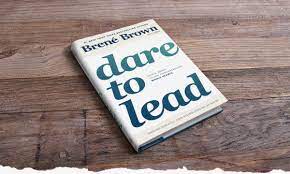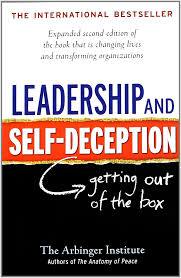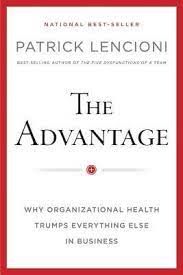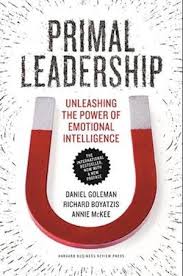10+ Leadership Books for Managers and Business Owners
January 30, 2024 2024-07-03 13:5010+ Leadership Books for Managers and Business Owners
Leadership is crucial for success in any managerial or entrepreneurial endeavour. Continuous learning and development are essential for staying ahead in the business and managerial worlds, and one way to stay ahead is by reading leadership books.
This article presents a curated list of 10+ leadership books for managers and business owners, offering diverse perspectives, strategies, and practical tools to enhance leadership prowess.
What you’ll learn from this article:
- Books to help you stay ahead in the industry
- Valuable lessons from successful leaders
What to Consider When Picking a Book
To select the most impactful leadership insights, consider the following criteria: relevance to current business challenges, author credibility and expertise, positive reviews and recommendations, and applicability to different leadership styles. Assess how well the book addresses contemporary business issues and offers practical solutions and strategies applicable to the ever-changing business landscape.
Another important factor to consider is the author’s credibility and expertise. Check for a track record of success or expertise in managing businesses or leading teams, prioritising authors with a reputation for thought leadership and innovation in business and management.
Positive reviews and recommendations from credible sources, industry professionals, and fellow leaders can also help determine the book’s quality. Look for books with a consistent track record of positive feedback and endorsements from individuals with similar professional contexts.
Applicability to different leadership styles is another crucial factor to consider. Look for books that provide insights applicable to various leadership styles and offer versatility in approaches, ensuring the content can be adapted to different organisational cultures and structures.
By applying these criteria, you can make informed choices catering to your leadership needs, providing actionable guidance for continuous improvement and success in your managerial or entrepreneurial journey.
Best Leadership Books
#1. “Leaders Eat Last” by Simon Sinek

“Leaders Eat Last” by Simon Sinek explores the concept of leadership based on trust, empathy, and selflessness. It highlights that exceptional leaders prioritise the well-being of their teams, creating a workplace environment where individuals feel valued and supported.
Sinek uses real-world examples and case studies to illustrate how leaders prioritising employee needs fosters a culture of collaboration and commitment. The title metaphor, “Leaders Eat Last,” encapsulates the book’s essence, emphasising the leader’s role in ensuring the team’s security and success before personal interests. The book is a theoretical exploration and a practical guide for leaders seeking to inspire and lead authentically. It serves as a call to action for those aspiring to create lasting impact within their organisations.
#2. “Dare to Lead” by Brené Brown

Brené Brown’s “Dare to Lead” is a groundbreaking work that challenges conventional notions of leadership by highlighting the power of vulnerability and authenticity. Brown’s research-driven approach explores the importance of embracing uncertainty, taking risks, and fostering a culture where individuals can bring their whole selves to work. She believes authentic leadership requires building connections, fostering trust, and navigating challenges with empathy and integrity.
The book equips leaders with actionable strategies to navigate the complexities of the modern workplace, emphasising emotional intelligence and resilience. Brown’s extensive research and practical examples empower readers to cultivate a culture of courage, innovation, and inclusivity within their teams and organisations. “Dare to Lead” guides leaders seeking to navigate the ever-evolving landscape of business with authenticity and courage, inspiring a new paradigm of leadership that transforms workplaces and empowers individuals to lead with purpose.
#3. “Start with Why” by Simon Sinek

“Start with Why” by Simon Sinek is a compelling book that argues that successful leaders and organisations focus on why they do what they do, not just what or how. Sinek introduces the Golden Circle concept, a concentric circle diagram with “why” at the centre, “how,” and then “what.” He contends that those who are able to succinctly express their “why,” purpose, cause, or belief inspire and attract people. This “why” becomes the foundation for everything the organisation does, from its products and services to marketing and employee relations.
The Golden Circle is divided into three sections: “why,” “how,” and “what.” The “why” is the core, the purpose, cause, or belief that drives the organisation. The “how” is how the organisation does what it does, its values, and its principles. The “what” is the product or service that the organisation offers. Sinek uses neuroscience to explain why people are drawn to stories and messages that start with “why.” The human brain is divided into two parts: the limbic brain, responsible for emotions and decision-making, and the neocortex, responsible for logic and reason.
The Law of Why states that people don’t buy what you do; they buy why you do it. If you can articulate your “why” clearly and compellingly, you will be more likely to attract and retain customers, employees, and partners. Sinek provides practical tips on how to start with “why,” including knowing your “why,” living your “why,” and communicating your “why.” He also provides examples of companies and leaders who have successfully used the Golden Circle to achieve remarkable results.
#4. “Good to Great” by Jim Collins

Jim Collins’ book “Good to Great” explores the reasons why some companies transform from “good” to “great.” He identifies key factors that drive companies to sustain exceptional performance, challenging conventional wisdom and offering insights for leaders. Key points include Level 5 leadership, which involves individuals driven by ambition for the company, and the importance of finding the right people who embody the organisation’s core values and principles.
The hedgehog concept, which focuses on understanding core strengths, passions, and economic realities, guides decision-making and resource allocation. A disciplined culture prioritises freedom within a framework, balancing liberty with clear boundaries and accountability. Success in companies doesn’t come from grand breakthroughs but from sustained momentum, where consistent, positive actions build upon each other.
Technology is seen as a force multiplier, amplifying the capabilities of great companies, not a magical solution. Collins’s book is thought-provoking for leaders and aspiring leaders, challenging them to look beyond short-term gains and focus on building a foundation for sustainable success. The book also presents real-world examples of companies that transitioned from good to great, illustrating the concepts in action.
#5. Leadership and Self-Deception: Getting Out of Your Way, by The Arbinger Institute

The Arbinger Institute’s book, “Leadership and Self-Deception: Getting Out of Your Way,” explores the hidden enemy of effective leadership: self-deception. The book argues that leaders face many challenges, conflicts, and frustrations from unconscious biases and deceptive narratives they create about themselves and others. It presents four distinct “boxes” representing different mindsets: innocence, victim, advocate, and producer. Leaders often operate from the victim or advocate box, blaming others or justifying their actions, leading to ineffective outcomes. Shifting towards the producer box, focused on contributing and serving others, unlocks true leadership potential.
The book breaks down the mechanisms of self-deception, showing how we subconsciously twist information and paint ourselves in a favourable light, often at the expense of others. The Inward-Outward Continuum differentiates inward-focused and outward-focused mindsets, with inward-focused leaders prioritising their needs and agendas, creating tension and mistrust. The book provides practical tools and exercises to help readers identify and overcome self-deception, improve communication, resolve conflict, and build more productive relationships. The principles apply to teams, organisations, and even nations, encouraging collective shifts in mindset to create a more collaborative and influential culture.
#6. The Advantage: Why Organizational Health Trumps Everything Else in Business

Patrick Lencioni’s book, “The Advantage: Why Organizational Health Trumps Everything Else in Business,” argues that healthy organisations, characterised by trust, communication, and alignment, consistently outperform their “unhealthy” counterparts. The book guides leaders to diagnose and nurture organisational health, ultimately achieving a sustainable competitive advantage. Lencioni’s five dysfunctions of a team, such as lack of trust, fear of conflict, absence of commitment, avoidance of accountability, and inattention to results, become stumbling blocks to organisational health.
The book also discusses the four disciplines of organisational health: building a cohesive leadership team, creating strategic clarity, over-communicating that clarity, and reinforcing strategy through systems and working methods. A healthy organisation rests on a foundation of trust and vulnerability among the leadership team, encouraging open communication, conflict resolution, and shared accountability.
Strategic clarity is crucial for organisations to address conflicting priorities and unclear directions. Over-communication is essential, involving various channels, tailoring messages to different audiences, and consistently reinforcing the strategic direction. Systems and processes that embed the strategy into everyday operations ensure consistent execution and reinforce desired behaviours.
“The Advantage” offers a refreshingly human-centric approach to business success. It urges leaders to prioritise building a healthy environment where people and performance can thrive. The book uses relatable stories and real-world examples to illustrate its points and delves into deeper human dynamics within organisations.
#7. The First 90 Days: Launch Into Success with Actionable Strategies by Michael D. Watkins

“The First 90 Days: Launch Into Success with Actionable Strategies” by Michael D. Watkins is a comprehensive guide for new leaders to navigate the transition smoothly, gain trust, and deliver results quickly. The book focuses on ending the “honeymoon” and dealing with disappointment, securing early victories, navigating power dynamics, creating a high-performing team, and communicating strategically.
The book covers six critical phases, from “honeymoon” to “implementation,” and focuses on building relationships, understanding the culture, and setting the stage for success. It also provides a 100-day plan with clear goals, milestones, and communication strategies. The book also covers leadership styles, power mapping, team building essentials, and overcoming challenges like information overload, political landmines, and resistance to change.
The book is a guide and a trusted companion on a transformative journey. Its action-oriented approach and accessible language empower readers to make a powerful and lasting impact in their new role. Success in the first 90 days sets the stage for your entire career trajectory, so investing in this book and investing in yourself is essential to launching into success.
#8. “Good to Great” by Jim Collins
“Good to Great” by Jim Collins is a book that explores the principles that transform good companies into exceptional ones. The book introduces the concept of Level 5 leadership, emphasising humble yet determined leaders who prioritise organisational success over personal recognition. Collins also explores the hedgehog concept, urging companies to focus on their strengths, economic engines, and passions.
Through case studies and rigorous analysis, Collins uncovers the disciplines needed for long-term success, such as confronting brutal facts and creating a culture of disciplined action. His findings have become foundational for leaders aiming to propel their organisations from mediocrity to greatness. “Good to Great” is not just a business book but a roadmap for transformational leadership, providing actionable strategies for achieving sustained greatness and leaving a lasting legacy in the business world.
#9. Centered Leadership by John C. Maxwell
“Centered Leadership” by John C. Maxwell is a transformative leadership approach emphasising self-awareness, understanding of values, and aligning personal and professional goals. The book outlines the principles of centred leadership, emphasising leading oneself before leading others.
It explores how aligning actions with core values, maintaining emotional intelligence, and fostering a growth mindset contribute to a well-rounded and impactful leadership style. “Centered Leadership” is not just a guide for executives but a holistic exploration of leadership that encompasses all aspects of life. It empowers individuals to cultivate an authentic, purpose-driven leadership approach capable of navigating the complexities of the modern world. Through real-world examples and practical strategies, Maxwell provides a roadmap for leaders to stay centred, make ethical decisions, and inspire others.
#10. “Primal Leadership” by Daniel Goleman

“Primal Leadership” by Daniel Goleman, a renowned expert on emotional intelligence, is a book that explores the impact of leadership on organisational success. Goleman argues that understanding and managing emotions is a fundamental aspect of leadership that directly influences organisational climate and performance. The book identifies six leadership styles, from visionary to coaching, and demonstrates how each style can be harnessed to create resonance within teams and organisations.
The authors use extensive research and case studies to illustrate how emotionally intelligent leadership fosters employee engagement, innovation, and overall business success. The book also addresses the potential negative impacts of dissonant leadership on organisational culture. As organisations increasingly recognise the importance of emotional intelligence in leadership, Goleman’s work remains a foundational resource for those seeking to master the art of resonant and effective leadership.
FAQs
How can I improve my leadership skills?
To improve leadership skills, read widely, practice active listening, develop empathy, continuously learn, acknowledge and appreciate team efforts, and set clear goals and expectations. Effective leadership inspires and guides teams towards shared objectives, enhancing communication and team dynamics.




